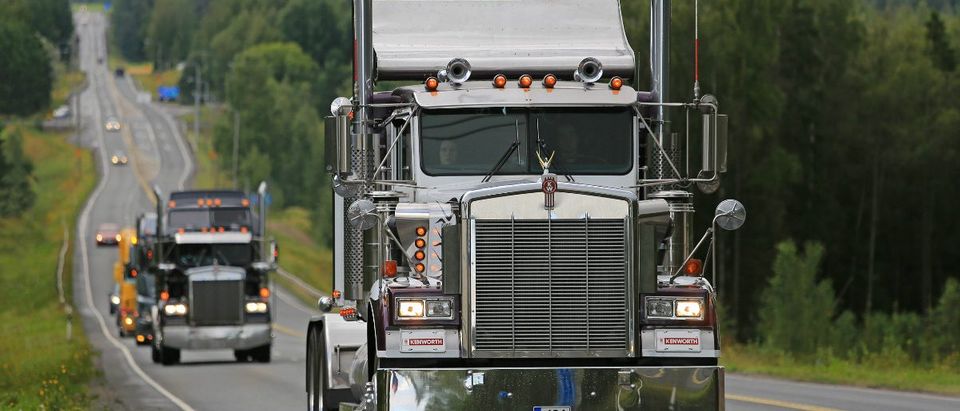America’s taxpayers spend billions of dollars a year repairing damage caused by semi trucks to highways and bridges. Now the trucking industry wants Congress to allow heavier trucks on the road, which would force taxpayers to shell out even more.
The Highway Trust Fund (HTF) devotes more than a third of revenues to non-highway purposes, meaning true repair and maintenance needs often go unmet. As a result, Congress has transferred some $140 billion from the General Fund to the HTF in the past seven years to help keep roads and bridges graded a D and C+ by the American Society of Civil Engineers functional.
The general fund dollars represent money that we all pay in various taxes on top an already-hefty gas tax drivers pay at the pump. A significant cause of these crumbling transportation systems are the impact that commercial users – particularly trucks – place on infrastructure. Because a truck weighs more than a trendy Vespa or the family minivan, and the gas tax does not account for impact – only raw consumption, anyone who drives a car extends corporate welfare to the trucking industry.
So it is questionable, if not troubling, that the trucking lobby is quietly begging the Senate Appropriations Committee to increase federal truck weight limits by 14 percent. A recent government study found that a similar increase in weight limits would result in trucks only paying for half of the impact they place on bridges, highways and roads. Taxpayers pick up the remainder of the tab.
The newest push, this time fronted by foreign-owned Anheuser-Busch InBev, is nothing new. In 2015, the same cast of characters made the same plea to Congress – to expand federal weight limits from 80,000 pounds to 91,000 pounds – and were handily rejected in the Republican-controlled U.S. House of Representatives.
Leaders in Congress likely listened closely to the unanimous concerns of our nation’s police officers, sheriffs, emergency responders, mayors and non-behemoth trucking entities that upping the weight limit would destroy our roads and bridges, and leave taxpayers on the hook for the repair bill.
Only this time, proponents of heavier trucks have seemingly arrived at a new and misleading “pilot” program whereby these enormous trucks can drive alongside you and your loved ones in a data collecting mission. The reasoning is that the U.S. DOT supposedly lacks needed stats, and highways can be a testing ground to gather more information.
That is hardly responsible governing.
In fact, the data already proves heavy trucks do not pay for the damage they inflict, and even heavier trucks would only intensify the underpayment.
Bridges across the highway system are in disrepair and require billions to fix, and that more and bigger trucks would create a larger funding need paid by taxpayers. And perhaps more importantly, public opinion data couldn’t be clearer: a 2015 poll found nearly eight in ten Americans oppose putting larger trucks on roads and highways.
Even in today’s sad state of politics, Congress wouldn’t ram through policies on the wrong side of 80 percent of Americans, right? If they did, I suppose using a “pilot” measure to bypass legislative protocols and ignoring public opinion would the only way.
Until trucks pay for their fair share of infrastructure costs, it’s completely ridiculous to discuss allowing heavier trucks to do even more damage to our nation’s roads and bridges, while forcing hardworking taxpayers to pick up the tab.
Drew Johnson is a Senior Scholar at the Taxpayers Protection Alliance.


